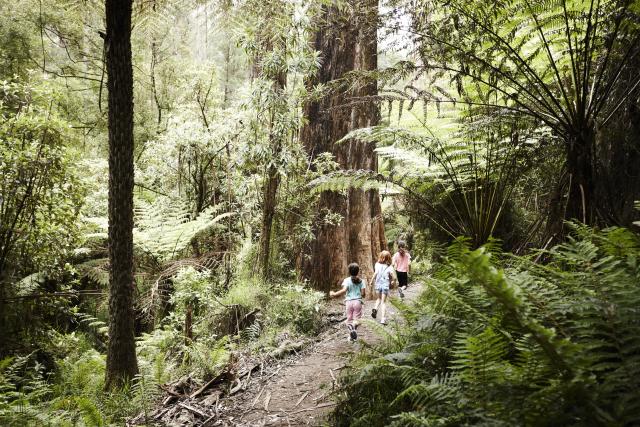According to the park ranger in charge of the Dandenong Ranges National Park; illegal tracks, foreign weeds and exotic species are some of the biggest threats to the local landmark.
Ranger Team Leader at Dandenong Ranges National Park Trevor McIntosh said over time, with different recreational activities taking place in the park, illegal tracks being created and overuse are a problem in the area.
“We do get illegal tracks occurring through the park and they’re directly through some of our pristine areas,” he said.
“That certainly has an impact and from those we get increased erosion and animals, both native and un-native, utilizing these tracks potentially spread weeds along those areas and introduce exotic flora.”
Another issue is people bringing their pets into the Dandenong Ranges National Park according to Mr McIntosh, who said dogs have a detrimental impact on native wildlife.
“There are illegal activities, whether it is firewood gathering or just bringing dogs into the park,” he said.
“Even if they’re on a lead, they can attack native wildlife and cause disturbances.”
Another risk is the threat of natural disasters such as storms, floods and bushfires, which can cause consequences beyond what is immediately apparent.
“We certainly had a major wind event, with hundreds of hectares of the national park being heavily impacted and a large number of trees falling over. That creates a reduced canopy, allowing extra light to come into the forest and the potential for more weed volume,” Mr McIntosh said.
“It has a whole range of impacts; it can be flooding, wind through, tree death, plant death or the introduction of exotic animals. It changes the whole dynamic.”
The Dandenong Ranges National Park covers an area of 35.4 square kilometres, spanning from Ferntree Gully to Silvan.
Mr McIntosh said there are plenty of ways people enjoying recreational in the national park can ensure they don’t cause damage to it.
“Read up on regulations before you go, or visit the Parks Victoria website to see what you can and can’t do,” he said.
“Don’t light fires on days of total fire bans, leave your pets at home and take your rubbish with you. Make as minimal an impact on the environment as you can.”
Another way to assist is to join the many friend groups that help take care of the national environment in the Dandenong Ranges.
Mr McIntosh said the national park is largely “in really good condition.”
“Over the years we’ve made land acquisitions, so some small pockets we haven’t really started work on yet. They might have been agricultural areas, so they’re not in great condition,” he said.
“The bulk of the National Park, which is three and a half thousand hectares, is in pretty good nick.”
Parks Victoria is currently running weed and animal control programs, targeting deer and foxes in particular.
Mr McIntosh said illegal dumping is common in the National Park.
“Things like dump tires, occasionally dumped asbestos and they all have a cost to us,” he said.
“Sometimes it’s just general household rubbish like mattresses and couches; it certainly has an impact on our labour resources. We could be doing something more useful.”







